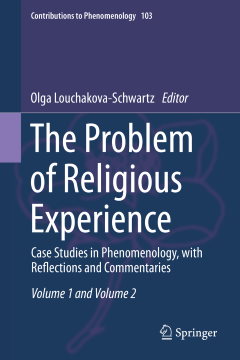Repository | Book | Chapter

(2019) The problem of religious experience, Dordrecht, Springer.
Reconnecting the self to the divine
the role of the lived body in spontaneous religious experiences
Shogo Tanaka
pp. 27-37
I would like to explore spontaneous religious experiences, 'spontaneous' meaning experiences that happen outside traditional religious beliefs or religious institutions and traditions but still have a religious nature. Such experiences include the feeling of unity with nature, experiences during peak performance in sports, or the sudden ecstatic sensation aroused by listening to a harmonious chorus, and so forth. Although they are not always recognized as "religious' for lack of a proper context, they are intense enough to awaken spiritual feelings. What is experienced as 'something beyond the self" in these cases may be the foundational source of divinity underlying all sorts of religious activities. My goal is to further explore the experience of divinity from the perspective of the embodied self in terms of the sense of agency. James (The varieties of religious experience: a study in human nature. Longmans, Green, and Co., London, 1902) listed passivity as one of the four hallmarks of mystical experience: the person feels as if his or her actions are guided by the Other while maintaining a sense of agency. In my view, this state originates in the function of the body-schema coordinating actions with the environment. In an unfamiliar situation, the body-schema organizes new bodily actions beyond one's intentions and expectations. Similarly, the body operates outside habit and as if following the Other's will in spontaneous religious experiences.
Publication details
DOI: 10.1007/978-3-030-21575-0_2
Full citation:
Tanaka, S. (2019)., Reconnecting the self to the divine: the role of the lived body in spontaneous religious experiences, in O. Louchakova-Schwartz (ed.), The problem of religious experience, Dordrecht, Springer, pp. 27-37.
This document is unfortunately not available for download at the moment.


